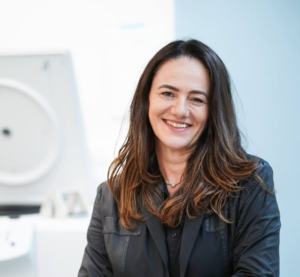Technion researchers from different disciplines win European Research Council (ERC) Consolidator Grants

Five Technion – Israel Institute of Technology researchers have been awarded the prestigious European Research Council (ERC) Consolidator Grant for pioneering projects in their respective disciplines. The ERC Consolidator Grant aims to help excellent scientists, who have 7 to 12 years’ experience after completing their Ph.D.s, strengthen their research teams, and pursue their most promising ideas. Each grant is for up to € 2 million for a period of 5 years.
The winning researchers from the Technion are:
Professor Nadav Amdursky, from the Schulich Faculty of Chemistry, studies biological electron and proton transfer. In a new study, he will develop tools to explore the transfer of protons within proteins. To date, there are no direct means to measure specific proton-transfer pathways within proteins, and most research is based on following the end-product of the reaction. Among other applications, these tools will enable the group to answer questions relating to cellular respiration – the process by which cells convert nutrients into energy.
Professor Meytal Landau, from the Faculty of Biology, studies amyloids – fibrillar aggregates of proteins. Amyloids are associated with numerous human diseases, including microbial and neurodegenerative diseases. In a previous study, her group showed effective anti-bacterial fibrils. In the study to be funded by the ERC Grant, Prof. Landau will delve into amyloid structure-function relationships and mechanisms, hoping to gain insights for rational design of antimicrobials.
Assistant Professor Graham de Ruiter, from the Schulich Faculty of Chemistry, develops new chemical methodologies to replace toxic, hazardous, and scarce precious metals with more environmentally friendly earth-abundant metals in catalysis. He will apply this concept to address outstanding challenges in organic chemistry where the use of iron, for example, in cross-coupling, alkene, metathesis, and C-H bond functionalization remains limited. The impact of these discoveries will influence many existing processes in the agricultural, fine-chemical, and pharmaceutical industries, where the use of earth-abundant metals in catalysis carries enormous potential.
Professor Asya Rolls from the Ruth and Bruce Rappaport Faculty of Medicine, studies the physiological mechanisms underlying brain-body communication. She explores how emotional and cognitive processes affect immunity. In her project, she will investigate the connection between the brain, immune system, and the fascia – the largest tissue in the body. The connective tissue delineates the skin, surrounds muscles, and closely envelops all organs. Clinically, it is mainly considered a mechanical barrier separating organs and muscles. Prof. Rolls will examine the role of the fascia in neuro-immune communication.
Professor Avi Schroeder from the Wolfson Faculty of Chemical Engineering will focus on treating aging and neurodegenerative brain conditions, including Alzheimer’s disease and Parkinson’s disease, using advanced nanotechnology medicines.
The Technion’s Executive Vice President for Research, Prof. Jacob (Koby) Rubinstein, said “ERC Consolidator Grants are considered the flagship of research excellence under the Horizon Europe Research & Innovation Program. Our winners lead ground-breaking research in a wide range of disciplines: new insights in biology and medicine that hold the power to improve the effectiveness of medical treatments, and breakthroughs in chemistry that will revolutionize industry and protect our planet. The best researchers in Europe compete for these prestigious grants. It is a testimony to the excellence of our scientists and to the merit and potential that the ERC panel sees in their proposed research. While these are personal achievements of our researchers, we see their collective win as a testimony to the quality of research in the Technion as a whole.”
President of the European Research Council Professor Maria Leptin said: “ERC Consolidator Grants support researchers at a crucial time of their careers, strengthening their independence, reinforcing their teams and helping them establish themselves as leaders in their fields. And this backing above all gives them a chance to pursue their scientific dreams.”

